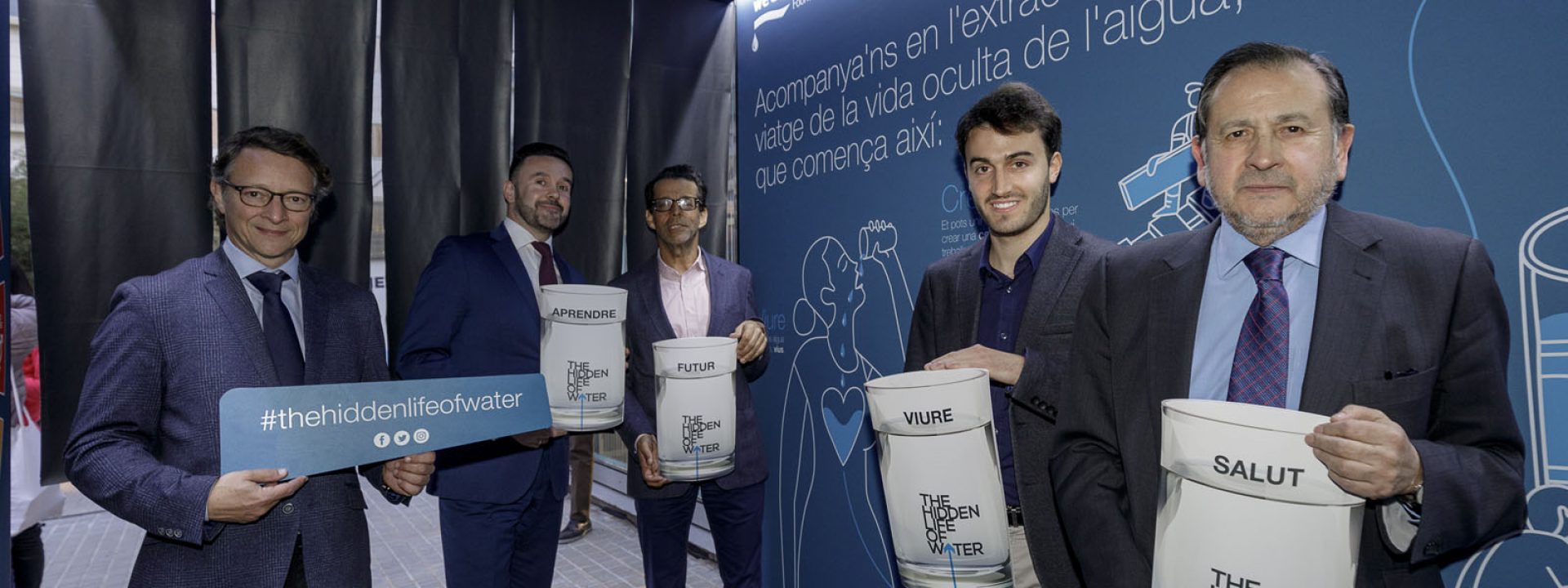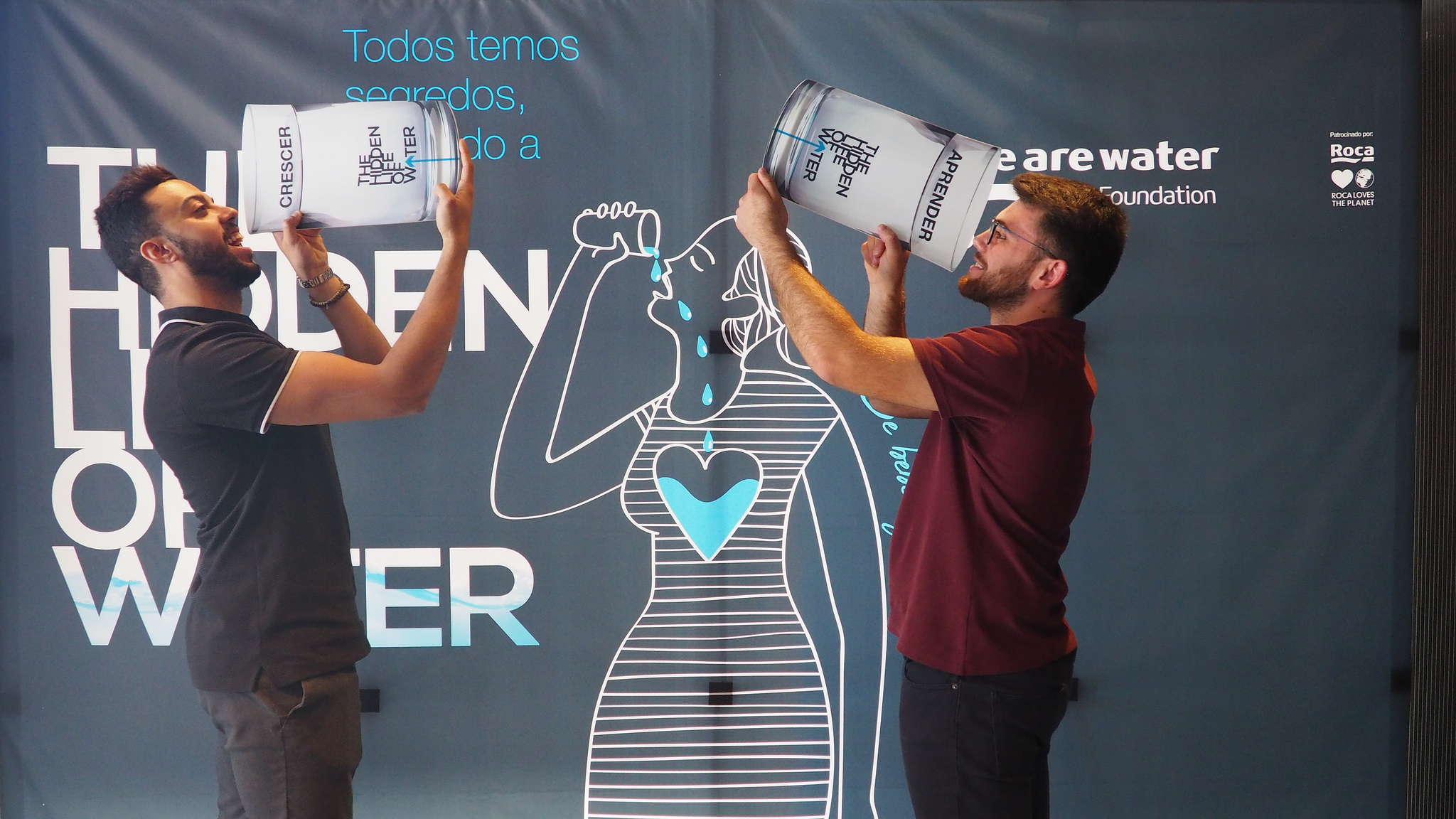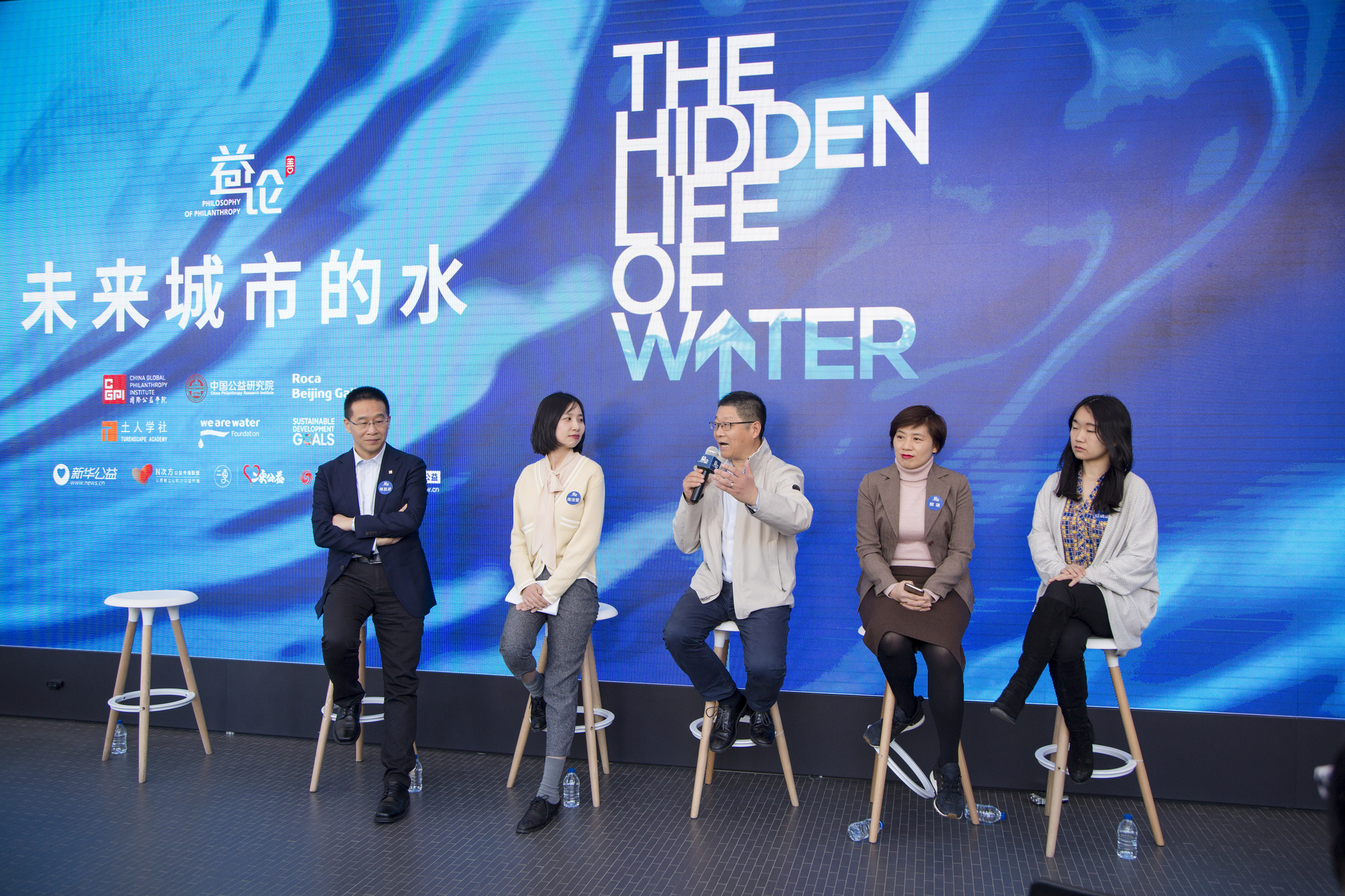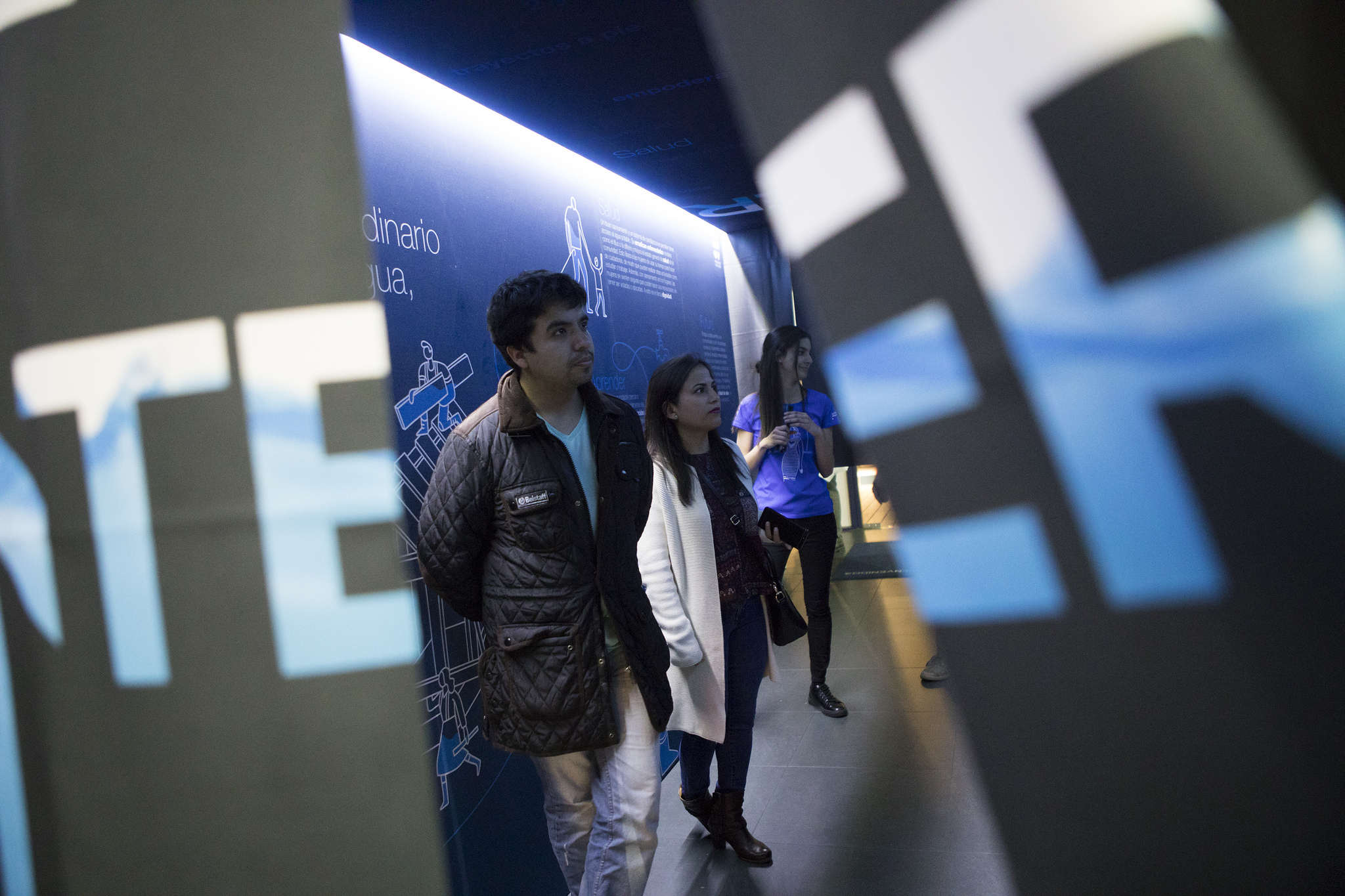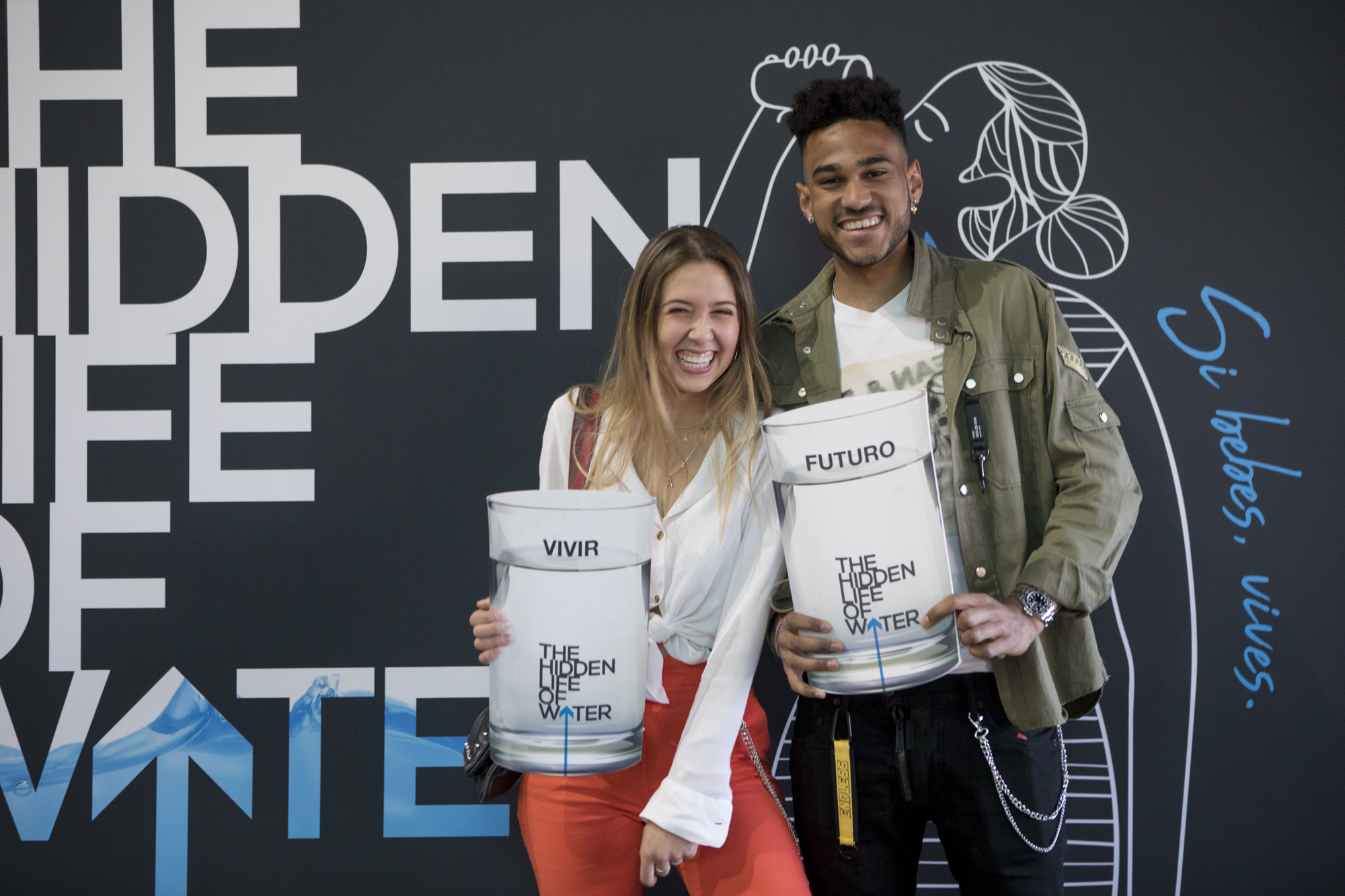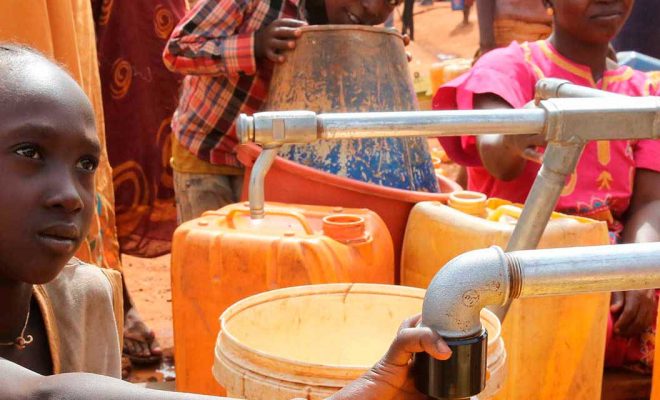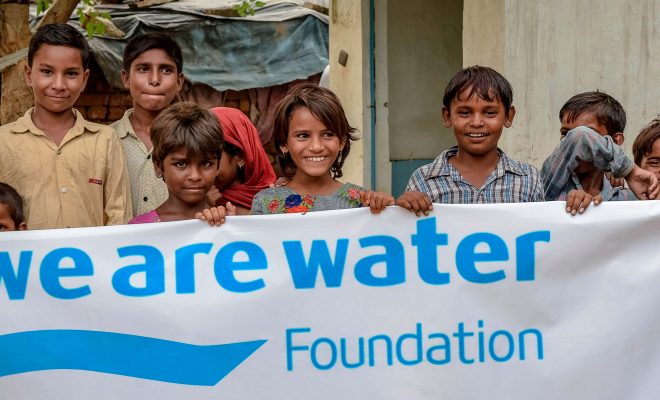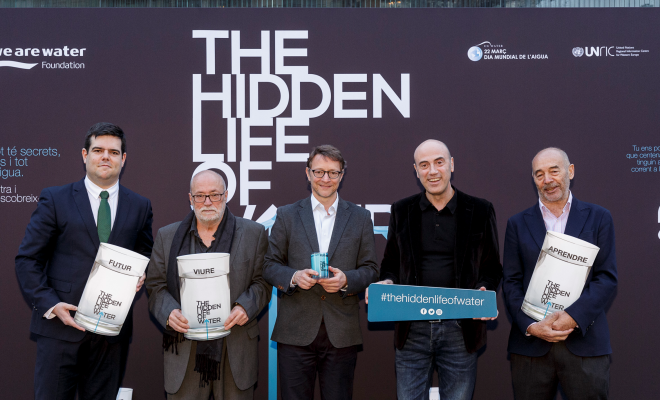World Water Day began a feeble media race in 1994 among all other international days driven by United Nations. Year after year, as the world became more aware of the reality of access to water and sanitation, the evidence of climate change transcended scientific reports and became “viral” among the civil society. After 15 editions, World Water Day has become one of the most important awareness-raising events worldwide.
#TheHiddenLifeofWater: 2,700,000 impacts all around the world
The activities driven by the Foundation this year corroborate it: the campaign The Hidden Life of Water carried out face-to-face actions in Spain, Dubai, Lisbon and Beijing, among others, having a direct impact on 9,800 people that actively participated in the action by publishing more than 700 images on social media.
Furthermore, the social media actions carried through in France, Northern Europe, USA and the Middle East achieved over 6,200 publications with the hashtag #TheHiddenLifeOfWater. Only on Twitter, the campaign was trending topic in Spain and India, while the Instagram profile and the website of the Foundation were visited by 1,885 people. It is estimated that all publications on the social profiles managed by the Foundation reached 13,000 people.
Moreover, on Instagram and Twitter, the message went viral thanks to personalities and influencers, achieving more than one million impacts. Including the media campaign, which was able to reach 1,300,000 people, the World Water Day actions had an impact on around 2,700,000 peopleall over the world.
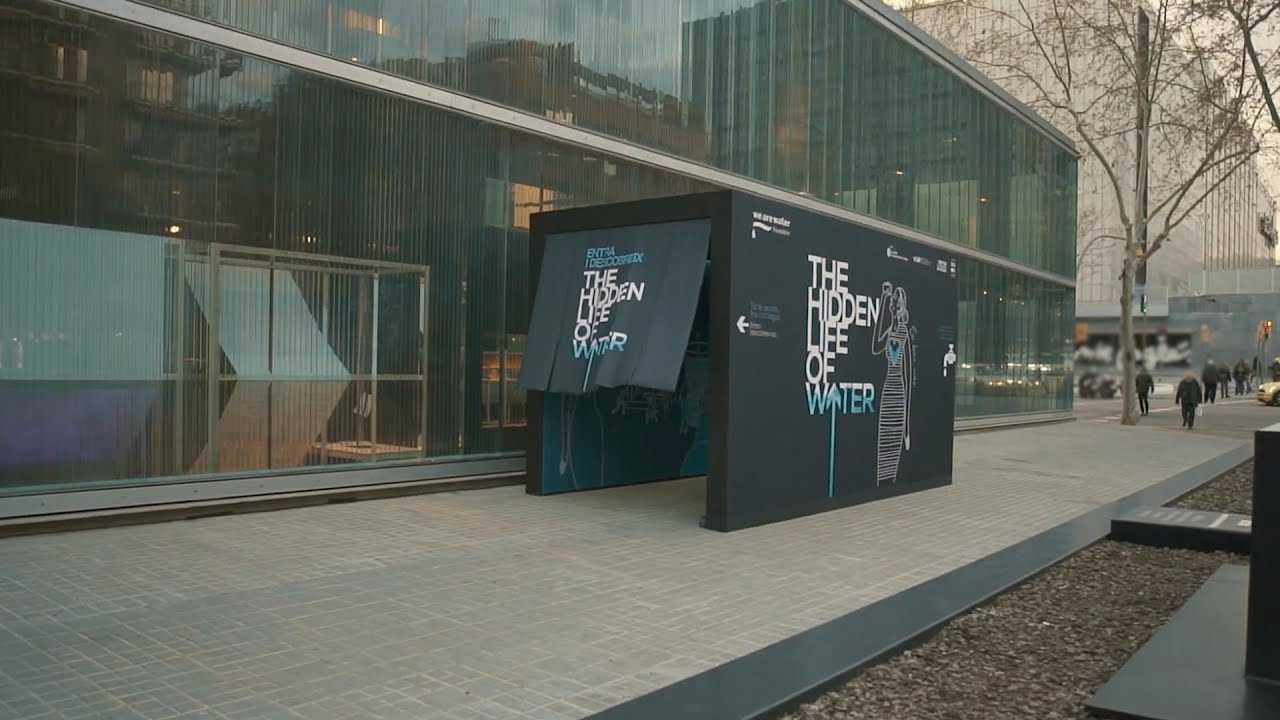
A debate with experts
“We are the first generation living on the planet that has exerted an unprecedented transformation of it. We have to manage the consequences of our actions.” These words by Carlos Mario Gómez summarize a situation confirmed by science and whose reality we are unquestionably assuming. The professor of Economics of the University of Alcalá and Advisor to the General Directorate for the Environment of the EU participated, along with Héctor Casanueva, executive vice president of FAP ALC-UE, Martí Oliveras, meteorologist at RAC 1 and RAC 105, and Xavier Torras, director of the We Are Water Foundation, in the round table Leaving No One Behind, which was organized by the Foundation on occasion of World Water Day at the Roca Barcelona Gallery. The debate, which was moderated by Alejandro Maceira, founder and director of iAgua, delved into the most concerning issues regarding water on the planet, which we need to solve urgently.
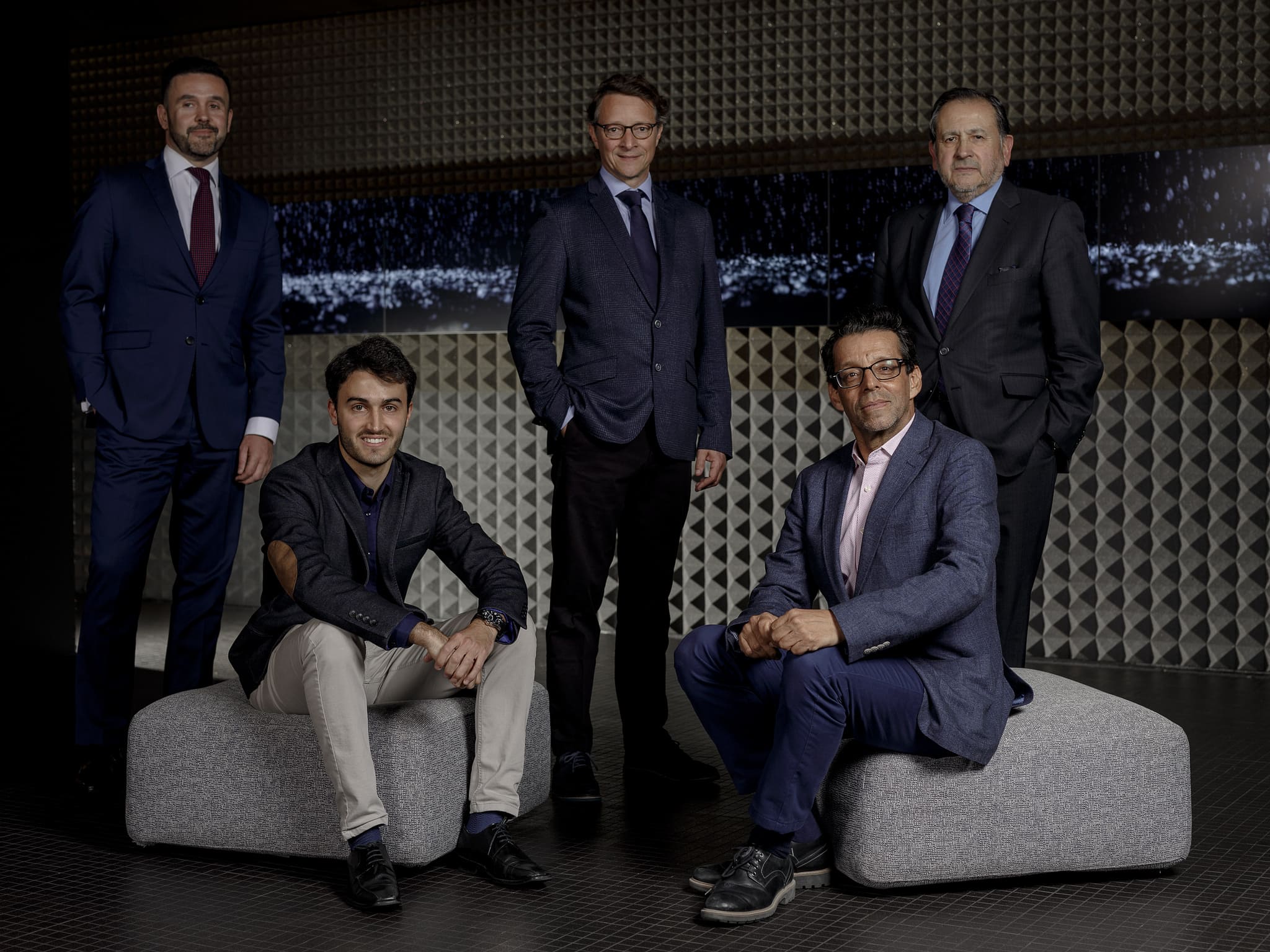
Get to know the SDGs!
The four speakers agreed that the world seems to be doomed to unprecedented uncertainty. As Alejandro Maceira said, “we need to reflect on the many problems that exist and ask ourselves, what are we doing wrong?”
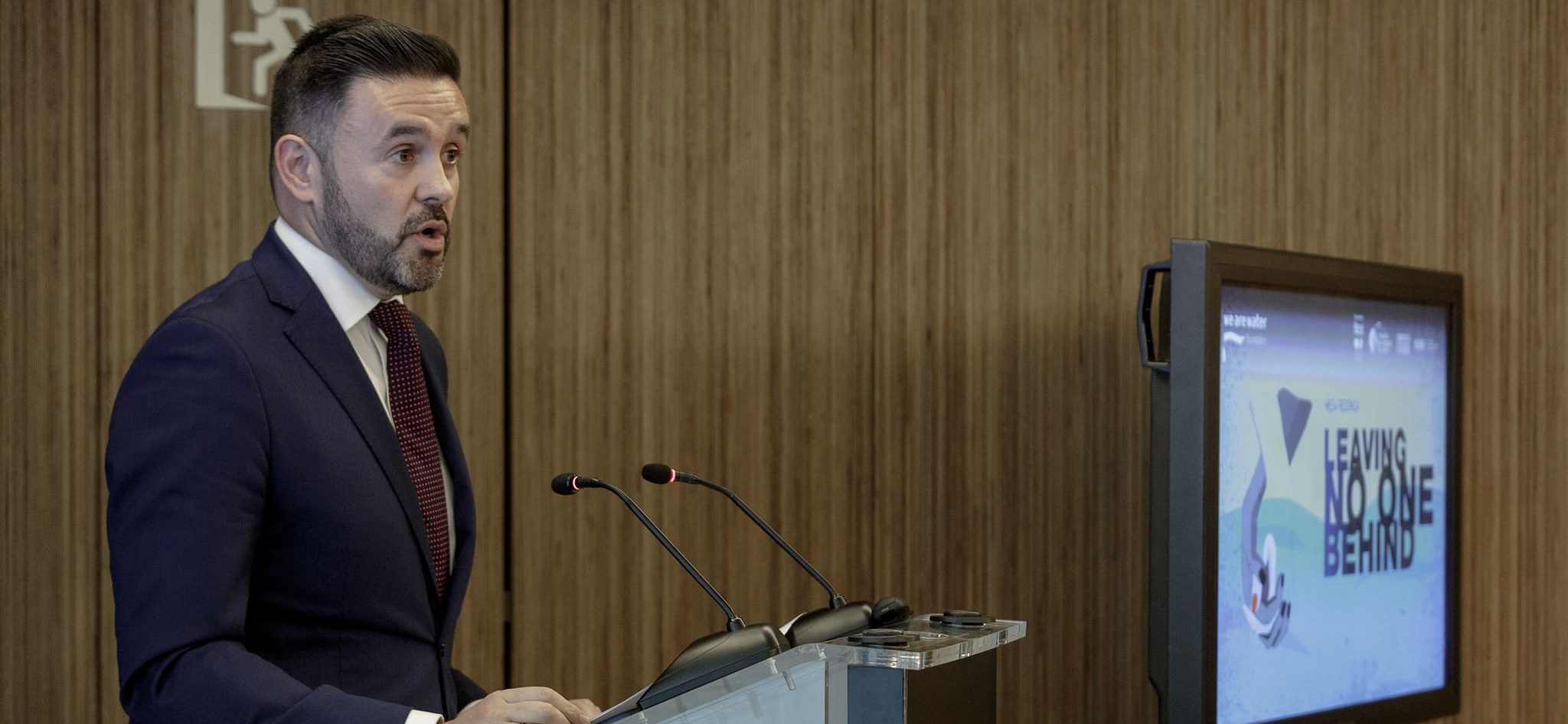
Alejandro Maceira, founder and director of iAgua
Xavi Torras highlighted the need for better communication to convey the magnitude of the problem we are facing to the public: “The SDGs [Sustainable Development Goals] show 17 realities we should be ashamed of. To start with, there is a communication challenge: many people do not know what they are and it is essential that we are all very aware, otherwise we will not achieve global solutions. Water, which is SDG no. 6, has an impact on all of them.”
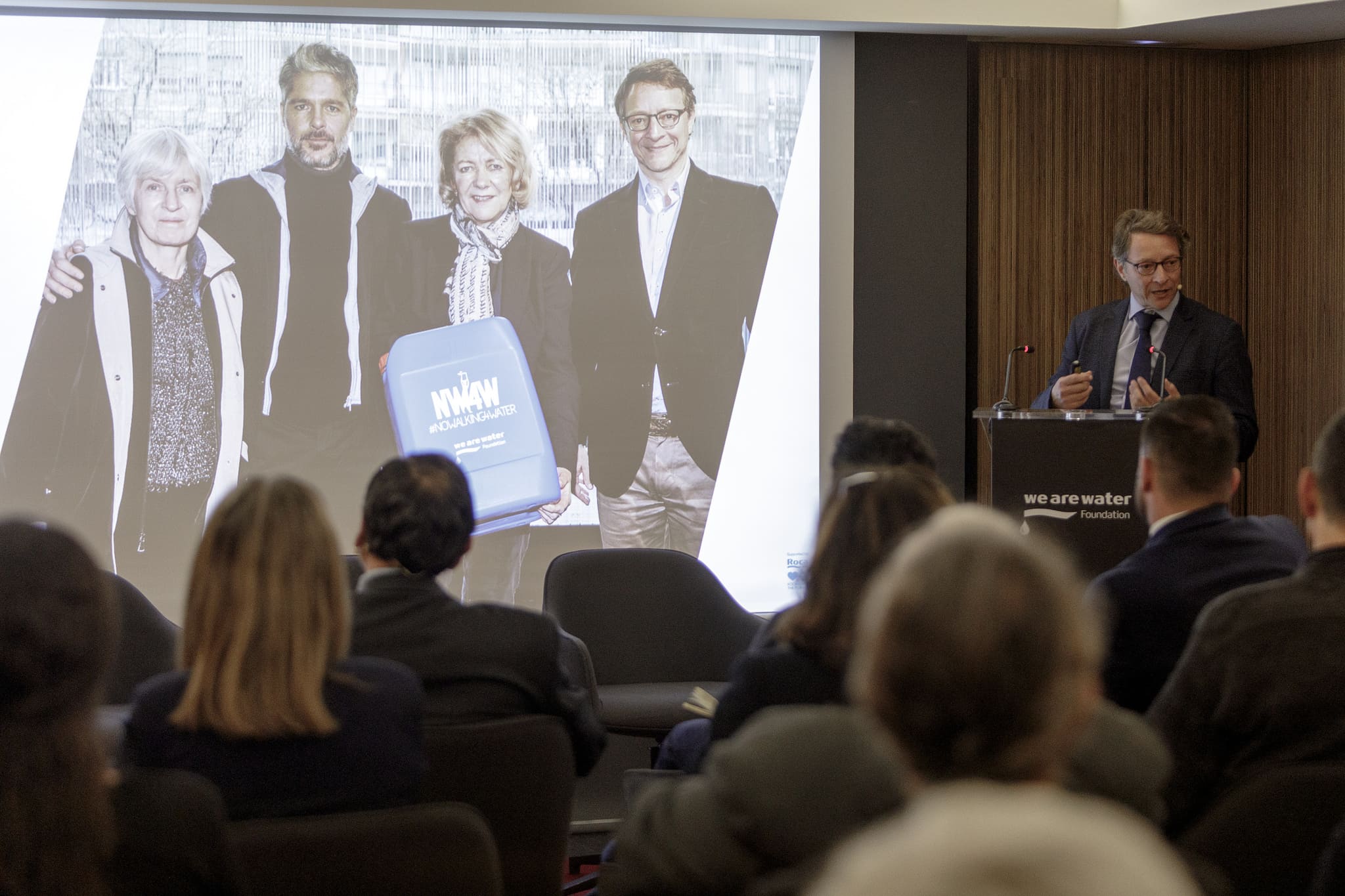
Xavier Torras, director of the We Are Water Foundation
Carlos Mario Gómez stressed the role played by the Millennium Development Goals (MDGs) in 2000, which were the prelude of the current SDGs: “The MDGs achieved great advances in water and sanitation. There is no precedent for such important advances in history. The SDGs try to integrate water in a more ambitious way and have more impact on improved sanitation.”
According to the economist, it is necessary to continue investing in water and sanitation so that no one is left behind: “Water breaks the chain that feeds back the circle of poverty and many other negative circles for development.”
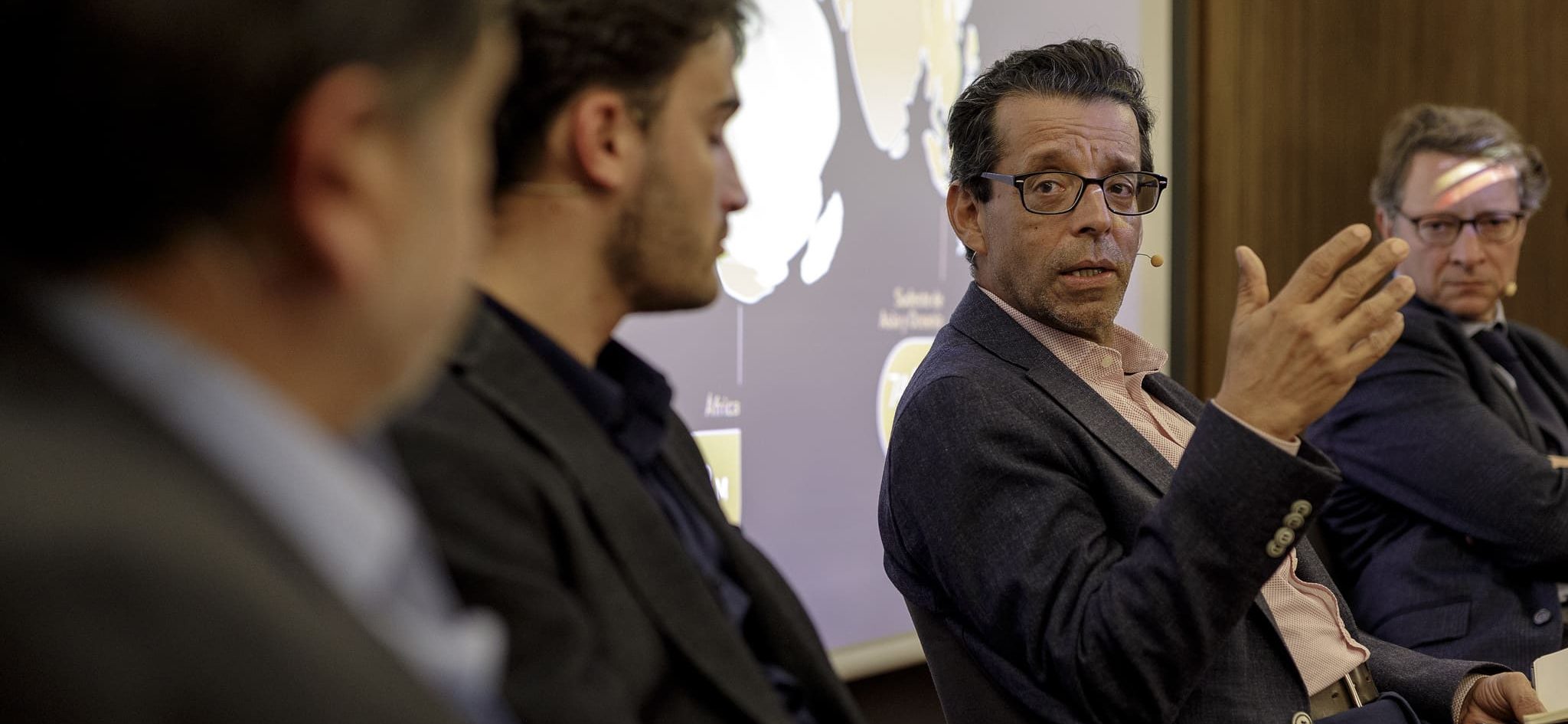
Carlos Mario Gómez, professor of Economics at the University of Alcalá and Advisor to the General Directorate for the Environment of the EU
Climate change is not a threat, we are already experiencing it
Climate change creates a situation that compromises the right of access to water and generates another communication challenge. Martí Oliveras pointed out what is already happening and visible to everyone, such as the loss of Arctic ice, glaciers and permafrost and assured that young university students are well aware of it, which bodes well for the future: “We are almost at a point of no return in global warming, but the younger generation, which has grown with the Kyoto conferences and COPs, is more aware. Moreover, climate change is very present among university students.”
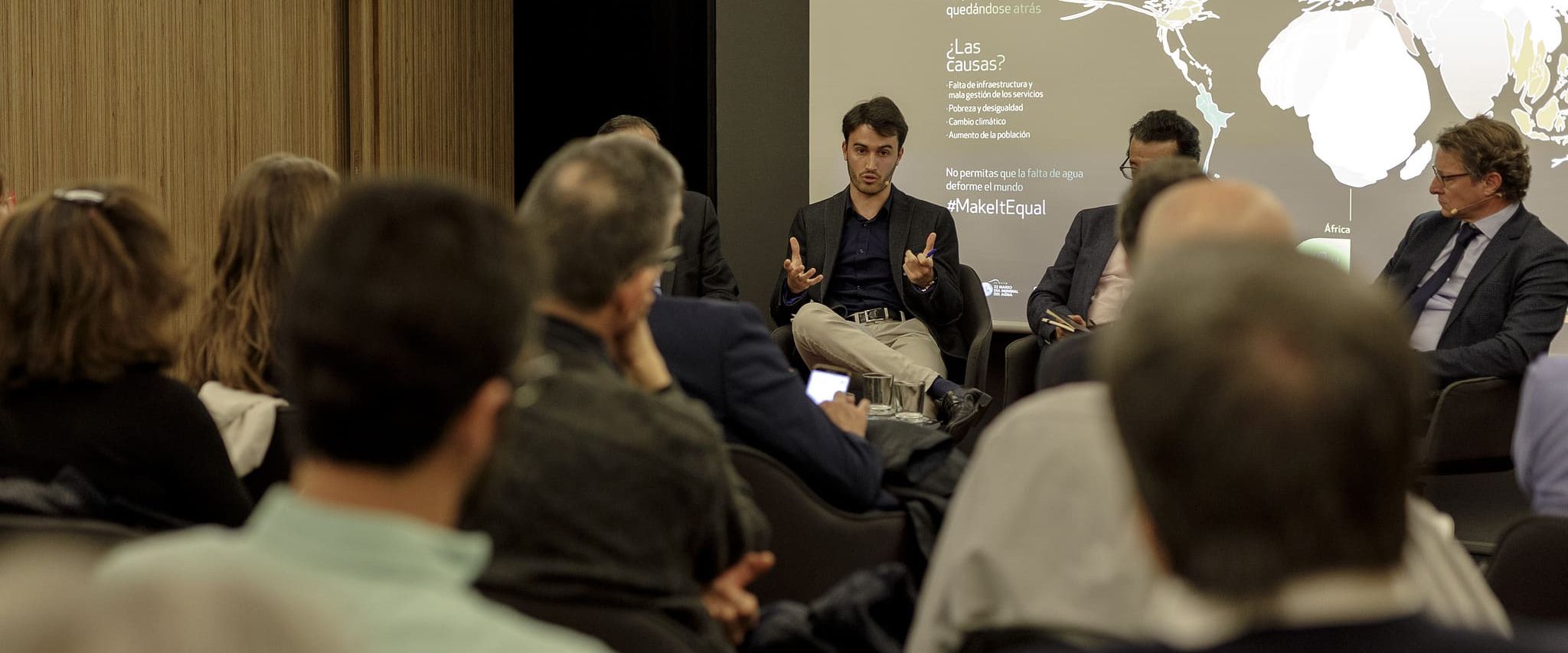
Martí Oliveras, meteorologist at RAC 1 and RAC 105
Xavi Torras explained the experience of the projects of the Foundation and warned of the migratory pressure caused by droughts: “The population groups that are more likely to be left behind are those people that live in small farms and are obliged to emigrate in many countries because it does not rain and the land cannot sustain them.”
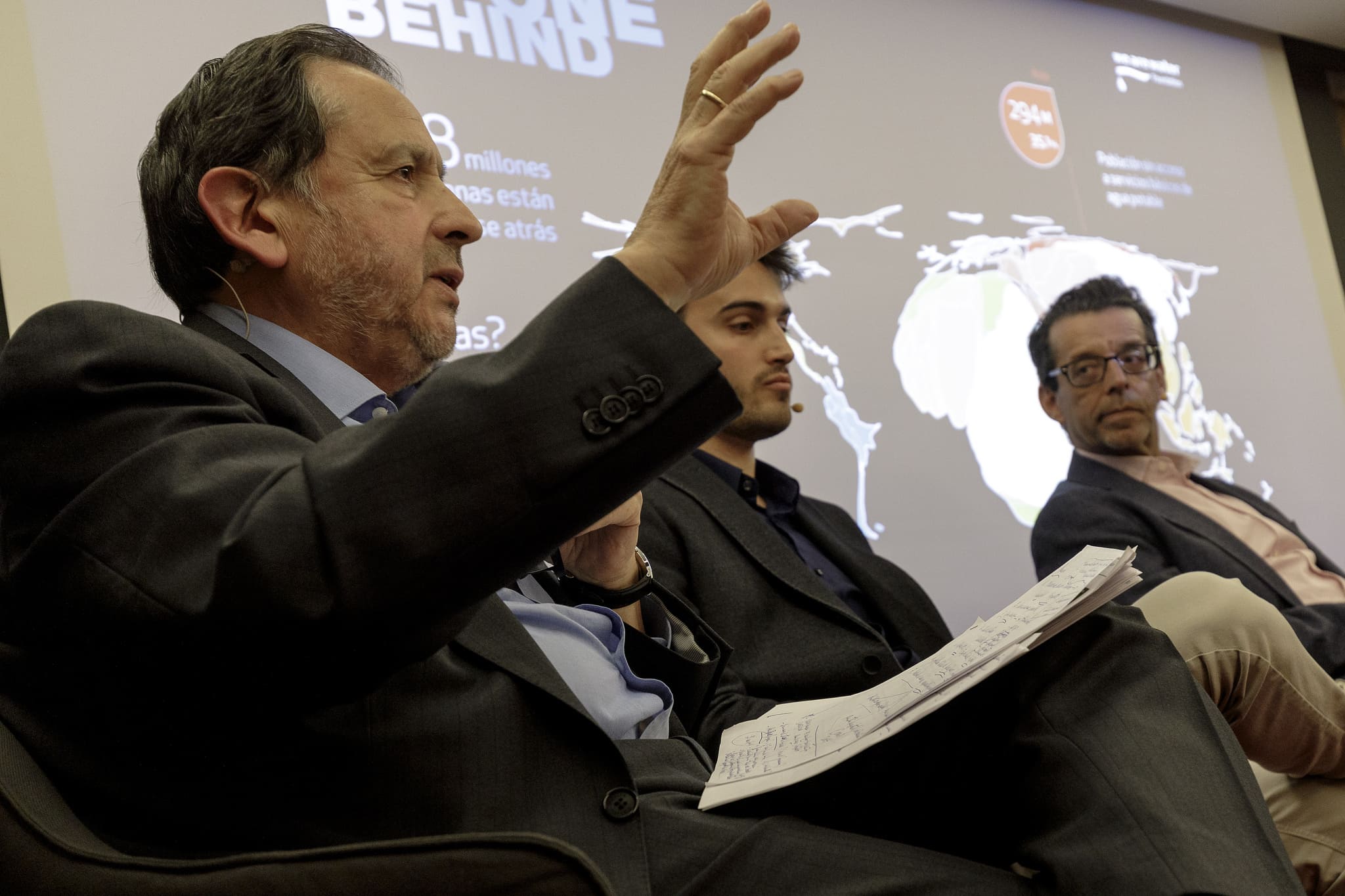
Héctor Casanueva, executive vice president of FAP ALC-UE
Global and participatory governance for water security for all
All experts agreed that the main problem is governance. According to Héctor Casanueva, the first exercise the international community must do is to “achieve a global governance of water for the global problems we have.” According to the Chilean expert this is a key step to avoid leaving anyone behind and it implies a consensus between governments and citizens: “Governance does not mean only a responsibility of the State, it implies a shared responsibility with the community. Water brings together people, the community, who have to share and participate in this responsibility. We must introduce strategic thinking, design future scenarios and choose one to be able to structure the water policies of the present.”
Carlos Mario Gómez highlighted the importance of understanding the concept of water security which encompasses access guarantees and foresees extreme scenarios of drought or floods: “Water security is important because it prioritizes social objectives over facilities. The economy and people tend to concentrate in areas where there is no water and which are more vulnerable, and people need to be protected. The access to water is important but it is more important to guarantee this access over time.” According to the professor from Madrid, this requires hydrological planning models that adapt to the climatic and water reality, which is less predictable now, and he insisted on efficient governance: “Neither the amount of water nor technology are a problem. The problem is poor management.”
The importance of the water-energy nexus was highlighted by Héctor Casanueva: “It is important to know and study the water-energy nexus and the water footprint due to the growth of the population incorporated into consumption. The demand for both resources increases and needs to be worked on from an all-encompassing approach.”
Casanueva warned of the need for an adequate legal framework for governance to be effective and ensure investments: “In order to reach the UN 2030 goal investments are required: between 50-60 billion dollars annually. It is an important amount that requires an efficient framework for investors.”
Water brings together and unites, it does not separate
According to Martí Oliveras we need to take responsibility for future generations: “Those who come after us will be the ones who will suffer the most the consequences of what we do now. We have an obligation to move forward and prevent this from happening.”
The climate future worries experts, but all four of them share optimism. According to Héctor Casanueva we have to trust the capacity for innovation, as we already have several examples of it: “There are techniques that appear as solutions: saltwater agriculture is one of them, in Latin America this can be very beneficial in coastal areas like those of Peru. New ways of obtaining solar energy are also being developed. Innovation will feed the world, but we need to know how to manage innovation.”
For both Casanueva and Gómez, water has more power to unite than to separate. “Water brings people together in a nucleus and this makes them see the solutions as a whole,” the executive vice president of FAP ALC-UE stated. For the economist “phenomena such as drought can trigger armed conflicts; but water is much more than just an incentive for international cooperation; we find an example in the countries that share the Danube basin. Moreover, many things are moving in the world. There are movements that encourage society. I am optimistic as there are positive ingredients that did not exist before.”
Xavi Torras appealed to the power of education and the progress of awareness: “Education is essential for both mitigation and adaptation. We need to learn more about the SDGs and study them, only then will we achieve global awareness.”


